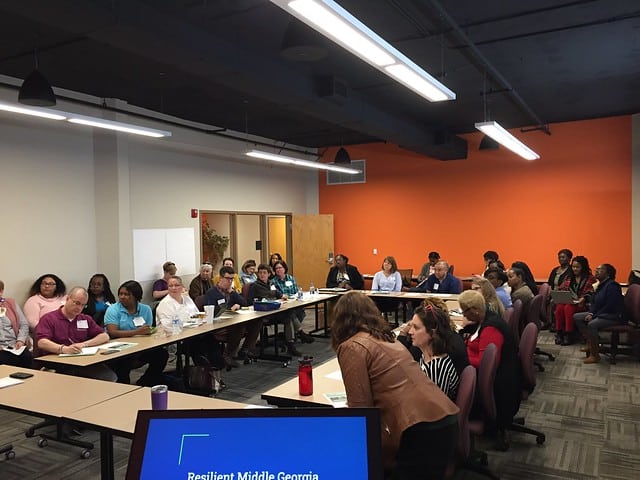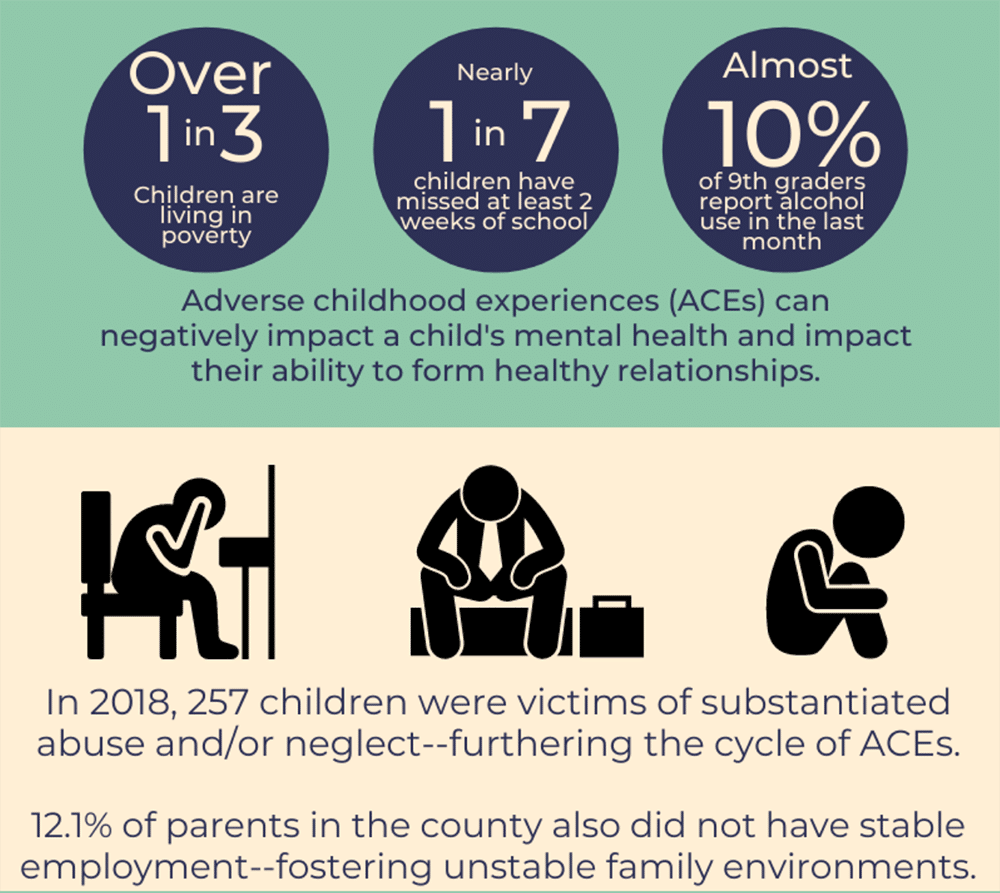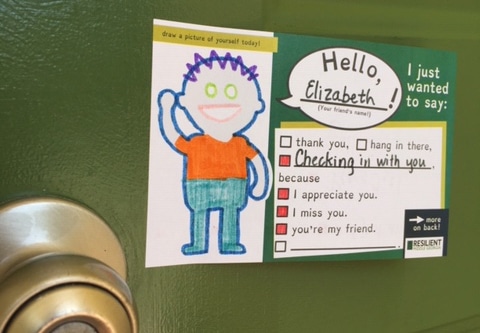Empowering and Connecting Middle Georgia Communities
Print This Post
Resilient Middle Georgia leaders gathered in February.
“What’s wrong with you?” This is often the question posed to children with behavioral problems—and the adults they grow into. What if the question was reframed to “What has happened to you?” And what if we embraced our communities and taught everyone how to face adversity with confidence and resilience?
These questions led Andrea Meyer-Stinson, associate director of the Master of Family Therapy Program at Mercer University, and Jill Vanderhoek, executive director of Bibb Community Partnership, to establish Resilient Middle Georgia, a coalition that aims to foster community resilience and integrate trauma awareness in Central Georgia.
“We want every adult a child interacts with to have a trauma informed perspective and be able to ask questions early on to see if needs are being met,” said Stinson. “We would like to see everybody speaking the same language and providing early intervention and prevention. We have to offer the right resources and support when a need is identified.”
Three in five Georgians have reported at least one adverse childhood experience (ACE) such as substance abuse, emotional abuse, and domestic violence. Behavior problems are often the direct results of trauma and other toxic adversity for children who don’t receive tools to grow past these challenges.
“This work is crucial not just because of the pandemic, but also because of the protests for racial equity,” said Vanderhoek. “Early on we focused on ACEs, but as we paused to rethink our grant, we realized we also needed to incorporate adverse community environments.”
Experiencing multiple ACEs, as well as circumstances like racism and community violence—without supportive adults—can cause toxic stress in children, which has a lasting impact. Children who experience ACEs often have a parent or guardian who also experienced ACEs, and the adverse effects of a parent’s traumatic experiences as a child can intensify a family crisis.

Resilient Middle Georgia’s website features infographics that showcase community adversity by county. These statistics reflect ACEs in Macon-Bibb County.
“Adverse environments are really the soil in which ACEs take root,” said Stinson. “When we talk about resilience in kids, we have to talk about resilience in the adults who help those kids. With a two-generational approach, we can stop those cycles of violence, poverty, abuse, and neglect. We have to intervene at the family level, or else the cycle continues.”
Resilient Middle Georgia is funded by a two-year, $200,000 grant from the Community Foundation through the Pittulloch Foundation, in partnership with Resilient Georgia.
“We must align conversations across sectors,” said Vanderhoek. “This work is foundational to all the other work Georgia Family Connection does in our communities and should be embedded into all the initiatives we participate in. Once we understand trauma and its impact, we can better serve our counties.”
Resilient Middle Georgia brings together education, health care, social services, mental health providers, law enforcement, juvenile justice, families, and other stakeholders to align conversations and build awareness and trainings that will better support children and families coping with adversity and trauma.
“Family Connection leading this project is a perfect fit because we’re trying to guide people toward a new conversation and help organizations work together to address these challenges so that we’re not operating in siloes,” said Stinson.
Bibb County Partnership, the local Family Connection Collaborative, is building partnerships and outreach, identifying and empowering community champions. Stinson provides field expertise, Georgia Rural Innovation Center analyzes data, and Community Foundation provides support as the grant’s fiscal sponsor.
Resilient Middle Georgia recently launched an initiative that allows neighbors to share encouraging notes and offers of connection. The notepads will be distributed through community organizations, and individuals may request a notepad by calling 478-219-2447.

“Communities with more connections are more resilient,” said Vanderhoek. “We realize it’s hard to focus on a long-term project like building trauma informed awareness as we’re all in the middle of a crisis, but we want to encourage connections and relationships even while distancing. In times of stress, resilience is even more critical.”
The Collaborative is working with partners to distribute “Resilience Bags” during drive-through food distributions, back-to-school events, and library programming. The kits include handouts on topics like coping, compassion, and navigating the “new normal.”
Resilient Middle Georgia had initially planned to host large events featuring guest speakers and movie screenings to engage various sectors. In response to the pandemic, the coalition pivoted to virtual presentations and conversations, and transitioned several trainings to a digital platform.
Angela Brown, social services supervisor for Georgia Division of Family and Children Services, said the “Connections Matter” training hosted by Georgia Center for Child Advocacy helped foster parents better understand why children in their care may act out and led them to request additional trainings focused on trauma and ACEs.
“My previous trainings have centered on alternative discipline techniques, whereas this focuses on understanding why and how people are affected by traumas they’ve experienced,” said Brown. “This training features one of the main components we teach foster and adoptive parents—that developing a positive connection to a child is sometimes all that’s needed to break through to them.”
Brown said Resilient Middle Georgia’s efforts to connect community stakeholders and align efforts are already making an impact.
“Relationships build communities,” said Brown. “These types of meetings and trainings can only be a win-win for the families and children we support. Having caring individuals who understand why children behave the way they do is the first step in finding collective solutions and helping people begin the process of healing.”
Learn more about Resilient Middle Georgia.
Contact:
Krystin Dean
GaFCP Communications Specialist
706-897-4711
krystin@gafcp.org
Follow us on Twitter: @gafcpnews
Connect with us on Facebook.
Georgia Family Connection Partnership (GaFCP) is a public-private partnership created by the State of Georgia and investors from the private sector to assist communities in addressing the serious challenges facing children and families. GaFCP also serves as a resource to state agencies across Georgia that work to improve the conditions of children and families. Georgia KIDS COUNT provides policymakers and citizens with current data they need to make informed decisions regarding priorities, services, and resources that impact Georgia’s children, youth, families, and communities.
